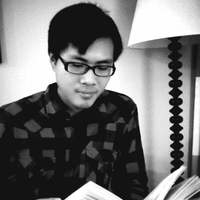
Leo Chu is a 2022-2023 Consortium Research Fellow and Ph.D. Candidate at the University of Cambridge.
My dissertation, “Harvesting Diversity: Taiwan, Southeast Asia, and the Transformation of the Green Revolution, 1950–2000,” examines ideas of diversity in agricultural development in Taiwan and Southeast Asia. Coined by the United States Agency for International Development in 1968 to stress the role of fertilizer-responsive cereals in reducing hunger and poverty worldwide, the Green Revolution popularized agrochemical-intensive farming as the driving force of economic growth since the 1970s. Critical scholars nonetheless pointed out the uneven socio-ecological impacts of the Green Revolution and American Cold War geopolitical goals to facilitate capitalist food regimes behind the seemingly politically-neutral seeds. My dissertation puts postwar Taiwan into dialogue with this literature. Influenced by Japanese colonial legacy, American aid, and nationalist ambition of the government, scientists in Taiwan were able to aggressively promote high-yielding seeds and agrochemicals by 1960. They then tried to make Taiwan from a recipient to a provider of technical aid with the establishment of the Asian Vegetable Research and Development Center (AVRDC) in 1971. In collaboration with Southeast Asian scientists, the AVRDC aimed to extend increased yield in rice to vegetables through multiple cropping—farming practices rotating or interplanting several crops in a year—thus diversifying food export and expanding the scope of the Green Revolution. This vision, however, was contested by scientists advocating more holistic approaches to development that balanced the pursuit of productivity with that of sustainability. They consequently sought to reform the Green Revolution by attending to less-agrochemical intensive production systems such as home gardens, and argued for the conservation of biological diversity by adapting farming methods to local conditions. My dissertation traces the competition and collaboration between the expanded and reformist visions in the networks of international research centers, universities, aid agencies, and philanthropic foundations, and shows how Cold War developmentalism shaped contemporary debates on sustainability.
Thanks to the support of the Consortium, in the past year I visited the Rockefeller Archive Center, the Harvard University Archives, and the University of Wisconsin-Madison Archives. For three weeks in December 2022 I sifted through the Rockefeller Foundation’s paper trail and nearly 100 microfilm reels from the Ford Foundation records to explore AVRDC’s connection to the two foundations often credited with launching the Green Revolution. The Rockefeller Foundation was crucial in Taiwan’s postwar agricultural development by financing the studies of government scientists in the United States, and contributed to the establishment of the International Rice Research Center (IRRI) in the Philippines, which the AVRDC modeled on, collaborated with, and actually hired its first director (Rober Chandler) from. The Ford Foundation, while not directly funding the AVRDC, was vital in the reformist Green Revolution agenda by supporting anthropologists and ecologists in Southeast Asia in the 1970s and 80s for research on socio-ecologically sustainable alternatives to rice monoculture. The collection at the Rockefeller Archive Center enables me to examine how networks emerged and collapsed, the day-to-day routine of project management, and the tensions scientists felt between their scientific ideals and the often authoritarian states they served.
In the university archives of Harvard and the University of Wisconsin-Madison, which I visited respectively in March and May 2023, I focused mainly on the wider contexts giving rise to the convergence of sustainability and development in global environmental governance. At Harvard I consulted papers of diplomat Peter Thacher and industrialist-turned-environmentalist Maurice Strong. I traced their careers in United Nations and international scientific organizations, locating connections between various research institutes created following the 1972 UN Conference on the Human Environment, such as the International Institute of Environment Development, the Beijer Institute of Ecological Economics, and the Stockholm Environment Institute. At Wisconsin-Madison I concentrated on the collection of ecologist Orie Loucks, who popularized the study of agroecosystems in the United States based on his concerns over the environmental impacts of pesticides like DDT in the 1960s. In his personal correspondence, I discovered his active engagement with scientists in Asia during the 1980s to exchange views on agricultural development and environmental quality, and how he left a sizable impact on environmental and resource programs of Ford Foundation. Between these trips, I also explored the Urban Agriculture collection at the New College, University of Toronto, which housed a surprisingly rich collection of Canada’s International Development and Research Center’s support for urban farming initiatives in the Global South in the 1990s, where the AVRDC played a pioneer role. Meanwhile, to counterbalance the account of scientists who, though critical of state projects in Southeast Asia to impose unsustainable development, largely sought to reform the system from within, I investigated the Friends of Filipino records, a human rights group active in the 1970s and 80s, at the Wisconsin Historical Society. While agricultural scientists in Taiwan, Thailand, the Philippines, and Indonesia often viewed their network as a coalition of development and progress, from activists working with peasants, the state’s technological solution often ignored larger transnational political economy and local power struggles. Following this archival work, I expect to complete my dissertation in the coming year and produce a rich account of scientists’ diverse imagination of development from multiple peripheries, thus both broadening and revising the history of the Green Revolution in relation to the historiography of science and technology.